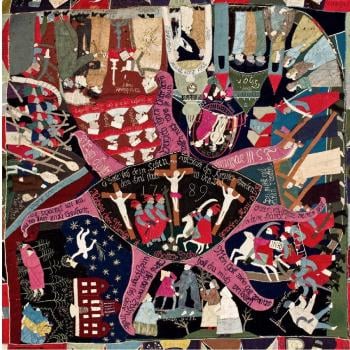The students engage in a three-fold process to 1) develop a clear understanding of a Progressive Christian faith that is appropriate to their traditions, contexts, and personal journeys, 2) articulate their faith standpoint in a manner that directly links the heart of the gospel to the justice issues of our day, and 3) establish the contemplative prayer practices that will sustain their lifelong justice work. The students are also provided with media training by Auburn Media—a rigorous day of work that proves to be a highlight of the summer.
Speaking truth to power demands powerful prophetic preaching and so we developed our Prophetic Preaching Workshops, entitled "Shaping Sermons to Nurture Justice," to provide the unique experience of grounding preaching in listening more than speaking. Each faith tradition has its own preaching style and each preacher does as well. But we want to encourage prophetic preaching that allows the preacher to speak from her heart, after listening to the stories of her congregation, her community, and her world. We trust that preacher to speak truth to power, once she or he is empowered to do so, in the way that can be heard in the local setting—and that way is different for everybody.
The Beatitudes Society is working with a broad range of Progressive partners to build a strong national network of faith leaders who are bringing a Progressive Christian voice to the public arena. This summer, we are taking a good hard look at our work, expanding some initiatives and pruning others, as we hone in on those next best practices that will "move the dial" as they say.
We are focusing in on those faith leaders who are bold enough to speak truth to power, seeking to raise up a chorus of voices who will echo that Voice of the gospels that is always calling us to challenge the status quo. We want these leaders to be able to articulate a clear personal faith that is grounded in prayer and scripture, a Christian faith not privatized but rather engaged with the needs and issues of the day. As Desmond Tutu says, this is a faith in the God of Jesus that turns us not inward toward our navel, but outward toward our neighbor, and our neighbors' needs, needs that are met through public policy, not just private good will.
Moving into the second decade of the 21st century, it is clear to see that this is a faith that will cross denominational boundaries and move outside of institutional structures. As one of our young leaders says, "I love identifying as a progressive Christian more than my own denomination because it says to me that we are not incurvatus in se (turned in on ourselves) but rather opened to the needs of the world."
It is my hope that in the future, Christianity would be known in the world for the radical, generous, inclusive love of Jesus, challenging the dominant powers, welcoming the children, standing with the excluded ones at the margins, and questioning the institutional structures that push them to the margins.
That's what The Beatitudes Society is all about. We are devoted to equipping emerging Progressive Christian leaders who will not only change the way that Christianity is perceived, but change what Christianity can do in the world beyond the church and the academy; I want to see Christian leaders who will take the lead to advocate for and with the poor, leaders who will promote peace and protect the planet.
In the future, I want people to know, as the very first followers of Jesus knew, that religion and politics do mix, and can mix in such a way that the poor receive plenty, the mournful are comforted, and the meek, not the mighty, inherit the earth.




